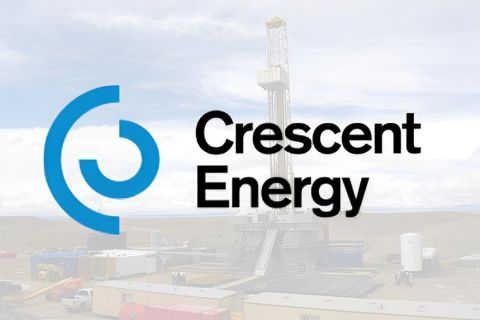The need to develop natural gas reservoirs from unconventional shale plays has caused a flurry of activity among oil and natural gas producers, who have rushed into several areas to bring the reserves to market as quickly as possible. The major producers have attracted a lot of attention in recent years, but the development has also benefited other industries which support the oil and gas development.
Chapman Corp., a midstream construction, fabrication and engineering firm based in Washington, Pennsylvania, is one example of a service industry that blossomed from the development in the Marcellus shale. They are one of a number of companies that operate in the background, providing essential construction and support services needed to bring the reserves of the Tri-State region of Pennsylvania, West Virginia and Ohio to market.
Most recently, Chapman has partnered with Caiman Energy LLC to develop the rich portions of the Marcellus in Marshall and Wetzel Counties of West Virginia with their turn-key civil, mechanical and electrical construction services. It provided the construction and fabrication services necessary for the 120 MMcf per day Fort Beeler Cryo #1 Plant, and is currently working on an expansion with a 200 MMcf per day Cryo #2 Plant scheduled for completion in the first quarter of 2012. Another 200 MMcf per day Cryo #3 Plant is planned for 2012. Chapman is working with Caiman on their new fractionation facility and NGL terminal along the Ohio River near Proctor, West Virginia.
Yet, Chapman is no newcomer to the gas industry. It has worked for more than 25 years with Columbia Gas of Ohio, EQT Corp. and Dominion Resources Inc. on their transmission and distribution networks. In 2007, Chapman hit the ground running with Range Resources Corp. and their partner MarkWest Energy Partners LP on their Houston, Pennsylvania, complex which now consists of cryogenic plants processing a capacity of 355 MMcf per day as well as their 42,000 barrel (bbl.) per day depropanizer. Chapman's presence remains at this facility. It also helped MarkWest with its gathering infrastructure with the construction of the first seven compressor stations serving Range Resources' production. Chapman recently completed the second phase of its Majorsville 270 MMcf per day processing plant near Dallas, West Virginia.
The company has continued this work with MarkWest by fabricating launchers, receivers, valve sets, metering skids, slug catchers and completing all facets of their cryogenic processing and fractionating facilities throughout the Marcellus. Chapman also performs project scheduling, budgeting, engineering and construction to meet MarkWest's ongoing expansion in the region.
Chapman performs a wide range of services. Its on-site work includes excavation, foundations, slabs, and steel erection as well as installing pre-fabricated buildings and tanks. It fabricates and installs piping systems, manifolds, launchers and receivers and HVAC systems. It can design and build electrical substations, distribution and motor control centers along with lighting and emergency power systems.

“If you’re in the oil and gas business, you follow the producers and provide a service that allows them to meet their schedules and budgets.” — Dany Jew, manager of business development, Mustang Engineering LP
Marcellus sweet spot
Chapman's annual sales projection for this year is expected to exceed $150 million. More than 40% of that comes from projects directly related to the development of Marcellus Shale. Its Marcellus activities are concentrated in the states of Pennsylvania, West Virginia, Ohio and Kentucky, and account for a major component of its growth, says Chapman president Art Hathaway.
"It's the fastest growing segment of our business. The Marcellus is growing like a wildfire," he says. Chapman's headquarters are in the heart of the wet region of the Marcellus shale play. The location has given it some advantage over other construction companies.
Yet, at the beginning, Chapman faced some challenges. In many areas of the natural gas development, personal relationships are an important part of securing contracts and Chapman was initially a new face to potential clients. Gas developers initially preferred to bring in construction companies they had hired from other projects. "Those companies have traditionally done that work in the other plays," Hathaway says.
So Chapman needed to develop new relationships to get construction contracts with many midstream and natural gas producers. Along with past client references, Chapman uses industry shows and conferences to develop contacts and to make itself known.
Another major challenge facing the company is competing with non-union companies that bring in workers from other areas. "We are a union contractor supporting local qualified labor," says Hathaway.
The makeup of the Marcellus shale production calls for an infrastructure which is largely customized to each specific geographic location. Construction in the area calls for a great deal of flexibility. So another challenge is keeping up with the demands of midstream players who want projects completed right away. "It's absolutely blindingly fast," Hathaway says.
One reason for Chapman's growth and its increased market share is its ability to complete projects safely, on time and on budget, he says.
"Our name is rapidly gaining recognition. To many of the people who are actually coming into the area and spending the money, we are a new face to them. But we are here. We are right here in the middle of it. We have been providing the whole cadre of civil, mechanical and electrical services they need to have for the past 65 years with other industries such as power, steel, chemical and glass," says Hathaway.
Long-term growth
The ongoing development of Marcellus promises long-term opportunities for Chapman. "We foresee ourselves being part of the Marcellus play as long as the Marcellus is here and as long as the Utica play is developed. The services that we perform can go right up to the last day. We are a contractor in the midstream and everything we do can be transferred to other shale plays," Hathaway says.
Chapman is also looking at the industrial, wholesale and consumer user marketplaces as well. Chapman was the turn-key installing contractor for two recently completed CNG fueling sites in the Pittsburgh region which are the first ever in the Tri-State area. One facility is for EQT at its Smallman Street facility and another for Giant Eagle in the Crafton section of the city.
To keep pace with tomorrow's demands, Chapman is building a state-of-art 60,000 square-foot pipe and skid fabrication facility adjacent to its headquarters to compete in the long-term growth of the industry. It is expected to be completed and in operation by first-quarter 2012.
Challenges and trends
The challenges posed by the rush to develop the Marcellus Shale are not unique. Many of the potential problems occur in shale plays across the U.S. as service companies work to meet the needs of producers who want to develop as quickly as possible.
Houston-based Mustang Engineering LP is an engineering and construction management company that provides a wide range of services for energy producers both onshore and offshore. It has worldwide operations with offices in the U.S., United Kingdom, India, Malaysia, Saudi Arabia and Angola.
Its pipeline business unit provides full service pipeline expertise which includes engineering, design, integrity management, right-of-way, environmental permitting, survey, inspection, mapping, and geographical information systems. Domestically, Mustang is involved in projects ranging from the Gulf of Mexico to Canada. "We have projects going on throughout the U.S.," says Mark Nussbaum, director of pipeline field services.
Mustang's pipeline business unit in particular has seen an influx in new business from shale plays across the U.S. "We are an oil and gas engineering company so wherever there is any new development, whether it is shale or enhanced oil recovery or any type of project which involves the oil and gas sector, we see this as a new opportunity," says Dany Jew, manager of business development, pipeline.
Mustang is currently involved with projects in almost all the U.S. shale markets, including Marcellus, Bakken, Barnett, Haynesville, Fayetteville and Eagle Ford. "If you're in the oil and gas business, you follow the producers and provide a service that allows them to meet their schedules and budgets."
As part of Mustang's Inspection services, inspection and construction management personnel oversee the construction of new pipelines. "They are the owner's eyes on the construction site," Nussbaum says. Mustang designs the pipeline and stations and provides all the field services, but the physical construction is provided by other companies. The pipelines must be built according to requirements set out by the U.S. Department of Transportation and other Federal and State regulatory agencies.
If, during construction, an inspector determines that something is not in compliance with these regulations, the inspector reports the findings to the appropriate representative of the construction company. "It's the construction company's responsibility then to take action and have it stopped or reversed and corrected," Nussbaum says.
Development in the oil and gas industry follows trends and cycles, and many of the services companies follow those trends. A few years ago, operating companies were involved in developing liquefied natural gas (LNG) facilities and underground storage facilities and the service companies followed. "All of these trends have helped smooth over peaks and valleys in our work," Nussbaum says.
The U.S. shale plays will provide Mustang with ongoing opportunities for work, he says. Within the Marcellus and the Utica, for example, Mustang Engineering hopes to provide vital services to producers as long as they remain interested in the region.

“You have numerous prominent shale plays that are currently active and we foresee that, unless there is a complete downturn in the ability to market those natural resources, it should be an ongoing opportunity for everybody.” — Mark Nussbaum, director of pipeline field services, Mustang Engineering LP
"You have numerous prominent shale plays that are currently active and we foresee that, unless there is a complete downturn in the ability to market those natural resources, it should be an ongoing opportunity for everybody," Nussbaum says.
The Marcellus does have some isolated areas and access can be challenging, but in most cases, contracts are structured so that all sides involved work together. Royalty and property holders' payments are based on production and the product being transported to the market, so there is a built-in incentive to ensure the operators and the service companies which work with them get a secure access to the work site.
"If someone has skin in the game, they will ensure that the operators can have access," Nussbaum says.
Buying title companies
Acquiring land rights and permits is another ongoing challenge in some heavy-activity areas as local courthouses are overwhelmed with landmen and right-of-way agents using the courthouse resources to run titles.
"It gets so bad in some of these shale plays that some of the operating companies are going in and purchasing title companies and using them only for their work," Nussbaum says.
"In some cases, you can wait up to a week to get copies of property records in some of the courthouses."
In other cases, major operators are blocking up space in major hotels for their personnel for an entire year. The strong interest in shale plays has created a sharp need for pipeline engineers and other personnel in the field service disciplines. "There is clearly a shortage of experienced labor," Jew says.
Nussbaum adds, "It is a gold rush. Let's face it. Everybody is trying to get there quickly and do what they need to do whether it is negotiating for minerals, or negotiating for easement for a pipeline or space for a facility. And because of the sheer numbers of people who are there, those small courthouses are just overwhelmed."
In general, local counties and municipalities tend to appreciate the jobs and economic boost that the shale activity brings and tend to work harder to accommodate the needs of producers and their service companies.
"They know it benefits their schools and infrastructure. They like the revenue it generates for their area," Nussbaum says.

Chapman Corp. provided construction and fabrication services for the completed Caiman Energy 120 Mmcf per day Fort Beeler, West Virginia Cryo #1 Plant which is now processing gas. Chapman is now working with Caiman Energy on a 200 MMcf per day Cryo #2 Plant at the site which is scheduled for completion in first-quarter 2012. Source: Chapman Corp.
Recommended Reading
Moda Midstream II Receives Financial Commitment for Next Round of Development
2024-03-20 - Kingwood, Texas-based Moda Midstream II announced on March 20 that it received an equity commitment from EnCap Flatrock Midstream.
Uinta Basin: 50% More Oil for Twice the Proppant
2024-03-06 - The higher-intensity completions are costing an average of 35% fewer dollars spent per barrel of oil equivalent of output, Crescent Energy told investors and analysts on March 5.
Stockholder Groups to Sell 48.5MM of Permian Resources’ Stock
2024-03-06 - A number of private equity firms will sell about 48.5 million shares of Permian Resources Corp.’s Class A common stock valued at about $764 million.
CEO: Coterra ‘Deeply Curious’ on M&A Amid E&P Consolidation Wave
2024-02-26 - Coterra Energy has yet to get in on the large-scale M&A wave sweeping across the Lower 48—but CEO Tom Jorden said Coterra is keeping an eye on acquisition opportunities.
Matador Stock Offering to Pay for New Permian A&D—Analyst
2024-03-26 - Matador Resources is offering more than 5 million shares of stock for proceeds of $347 million to pay for newly disclosed transactions in Texas and New Mexico.





